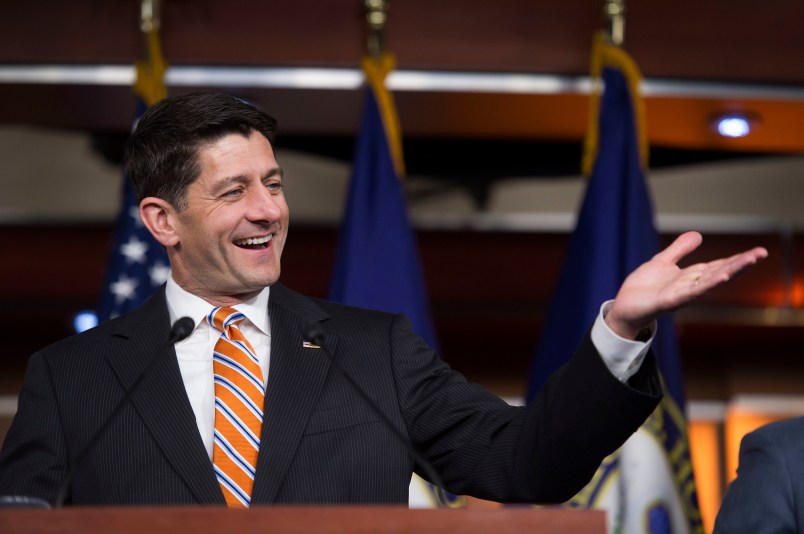The lesson Republicans have taken from watching their efforts to gut Medicaid face-plant is that their next act should be an attempt to gut an even more popular government health care program: Medicare.
On Tuesday morning, hours after Senate Majority Leader Mitch McConnell (R-KY) had pulled the plug on an Obamacare repeal bill that imposed a massive overhaul on Medicaid, the House Budget Committee unveiled a 10-year budget blueprint that would seek to transform and privatize Medicare.
The Budget Committee document had been long in the works, and yet the timing was striking. It signaled that Republicans may not be ready to abandon their slash-and-burn approach to social safety net programs, despite that approach posing a major obstacle to their efforts to dismantle the Affordable Care Act.
Though documents from the committee are treated as rough proposals and not set-in-stone legislation, Tuesday’s blueprint highlighted the goals and priorities of the Republican Party at a time when the GOP has full control of the federal government.
The blueprint included a proposal to turn Medicare into what Republicans call a “premium support” system, a long-held dream of House Speaker Paul Ryan (R-WI). Under premium support, enrollees would have the option to receive vouchers to purchase private insurance instead of using the government health care program.
There is some debate among experts as to whether this latest model of a premium support system would lead to a phase-out of Medicare entirely, or just its privatization. Either way, it’s a drastic scaling back of the program after President Donald Trump ran explicitly on preserving Medicare as is.
The budget blueprint also assumes passage of Obamacare replacement legislation that passed in the House but is presumed dead in the Senate, after enough Republican defections Monday night prompted McConnell to announce plans for a “repeal only” vote. There were fierce debates about how the legislation should handle the individual insurance markets. But both the House and the Senate bills embraced major cuts to Medicaid in the form of capping federal funding to the program on a per-enrollee basis—caps that grow more slowly over time than Medicaid spending, thus compounding those cuts in the long run.
Moderates and even rank-and-file Republicans were deeply uncomfortable with attaching the Medicaid cuts to a bill that was being pushed out through a rushed, partisan process. Now, they will have to grapple with whether to embrace or resist similar plans for Medicare, a program that many GOP lawmakers—even before the Obamacare debacle—appeared hesitant to touch.







Keep your fucking hands off Medicaid, Medicare, and Social Security, Eddie…
So, the GOP wants to turn Medicare into Obamacare. Got it.
It’s amazing… through their own incompetence, McConnell and Ryan’s GOP colleagues managed to avoid shooting themselves in the foot by not passing TrumpCare. Undaunted, the Republicans are making yet another attempt to snatch defeat from the jaws of victory by attacking Medicare, thus providing Democrats and their allied organizations with another reason to keep mobilized.
And of course, conveniently forgetting who has their back on this:
https://www.youtube.com/watch?v=uFl0K0DxZFUThis is awesome! These stupid gits are signing their own death warrants with this scheme! Economically anxious older white voters whose retirement plans/savings took a beating in the recession, and who voted for Trump, will certainly love to hear about a Republican plan to slash the one health plan everyone over 64 relies on. They might as well propose cuts to Social Security while they’re at it. Don’t do suicide halfway! Bite the cyanide capsule AND a pull the trigger on a bullet to the head simultaneously!